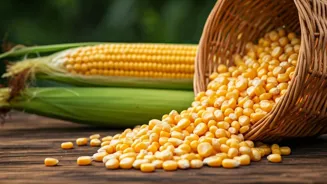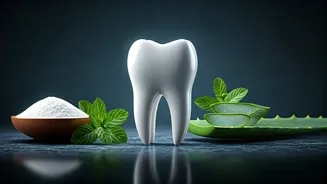Corn's Nutritional Profile
Corn, often underestimated, provides a wealth of nutritional benefits. It is a good source of antioxidants, which combat harmful free radicals in the body.
Moreover, corn is a source of fiber, which is essential for digestive health. Its low glycemic index indicates that it is digested at a slower pace, which is advantageous for keeping blood sugar levels stable. Corn’s composition also includes essential nutrients like vitamins and minerals, contributing to overall health and well-being. The inherent nutritional properties of corn render it a valuable food source.
Rich in Fiber
One of the most significant benefits of corn is its high fiber content. Dietary fiber helps regulate digestion by preventing constipation and promoting bowel regularity. The presence of fiber in corn aids in maintaining a healthy digestive system and lowering the chance of developing diverticular disease. Incorporating high-fiber foods like corn into a diet helps in reducing the risk of certain chronic diseases. Fiber contributes to a feeling of fullness, which can help in weight management by reducing overeating and controlling appetite.
Antioxidant Properties
Corn is a source of antioxidants that help protect the body from damage caused by free radicals. These antioxidants, such as carotenoids, act to neutralize free radicals, thus potentially reducing the risk of various chronic illnesses. Antioxidants in corn may assist in safeguarding cells and reducing inflammation, which is advantageous for brain health. Antioxidant-rich foods like corn are crucial for promoting general health and warding off premature aging. Regular consumption of corn can contribute to a strengthened immune system because of its antioxidant content, thus providing resistance to diseases.
Slowly Digested Carbs
Corn's carbohydrates are slowly digested, which is an important factor for maintaining steady blood sugar levels. This feature makes it a preferable option for individuals looking to avoid rapid spikes in blood glucose. Slowly digested carbohydrates offer a steady release of energy, preventing the energy crashes associated with foods that are quickly absorbed. For those managing diabetes or insulin resistance, corn can be included in a balanced diet due to its slow digestion properties. The gradual release of energy improves sustained focus and concentration, which can also aid in maintaining a stable and healthy weight.
Gluten-Free Naturally
Corn is naturally gluten-free, which makes it a suitable grain for individuals with celiac disease or gluten sensitivity. It provides a flexible option for those who need to adhere to a gluten-free diet. Corn products can be used in a variety of meals, which allows people to enjoy tasty and filling meals without having gluten-related health concerns. Being gluten-free, corn can contribute to digestive health by reducing inflammation and bloating commonly associated with gluten intolerance. For those avoiding gluten, corn offers a versatile and nutritionally beneficial alternative to wheat-based products.
Eye Health Benefits
Corn contains nutrients that contribute to the preservation of eye health. Certain compounds in corn, like lutein and zeaxanthin, act as antioxidants and safeguard the eyes from harm. These substances can protect against age-related macular degeneration (AMD) and cataracts, which are major causes of vision loss. Eating corn on a regular basis provides vital eye protection, contributing to long-term visual health. The inclusion of corn in your diet can boost visual acuity by fortifying the eyes and lowering the chance of developing eye-related illnesses.
Traditional Diets & Health
Corn has long been a key component of conventional diets, especially in areas where it is grown. Diets with corn as a staple have been linked to increased lifespan and general health in some communities. The nutritional composition of corn, along with its preparation and cultural relevance, contributes to its positive effects. The integration of corn into conventional diets highlights its role as a food source that has a favorable impact on health over time. The longevity benefits often linked to traditional diets, emphasize the need to consider corn as part of a holistic approach to food consumption.
Supports Heart Health
Consuming corn may help support heart health. The fiber content in corn aids in lowering cholesterol levels, a key factor in cardiovascular health. Corn also contains antioxidants, which protect the heart from damage caused by free radicals. Regular consumption of corn, as part of a balanced diet, may reduce the risk of heart disease. Corn’s contribution to maintaining healthy blood vessels and reducing inflammation is vital for overall cardiovascular well-being. Corn can be a valuable addition to a heart-healthy diet.
Brain Health Benefits
Corn’s nutritional profile indicates that it can potentially help protect brain health. Antioxidants found in corn may reduce oxidative stress in the brain, which is linked to cognitive decline and neurodegenerative diseases. The slow-digesting carbohydrates in corn provide a consistent supply of glucose to the brain, promoting cognitive function and concentration. Incorporating corn into a balanced diet supports brain health and may help lower the risk of cognitive problems. The advantages of corn for brain health make it a good option for those trying to improve and maintain cognitive function.



















